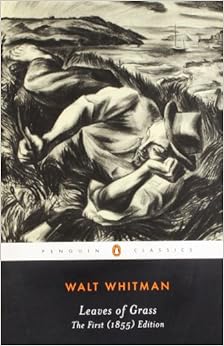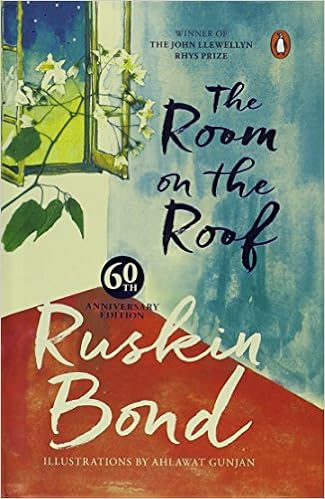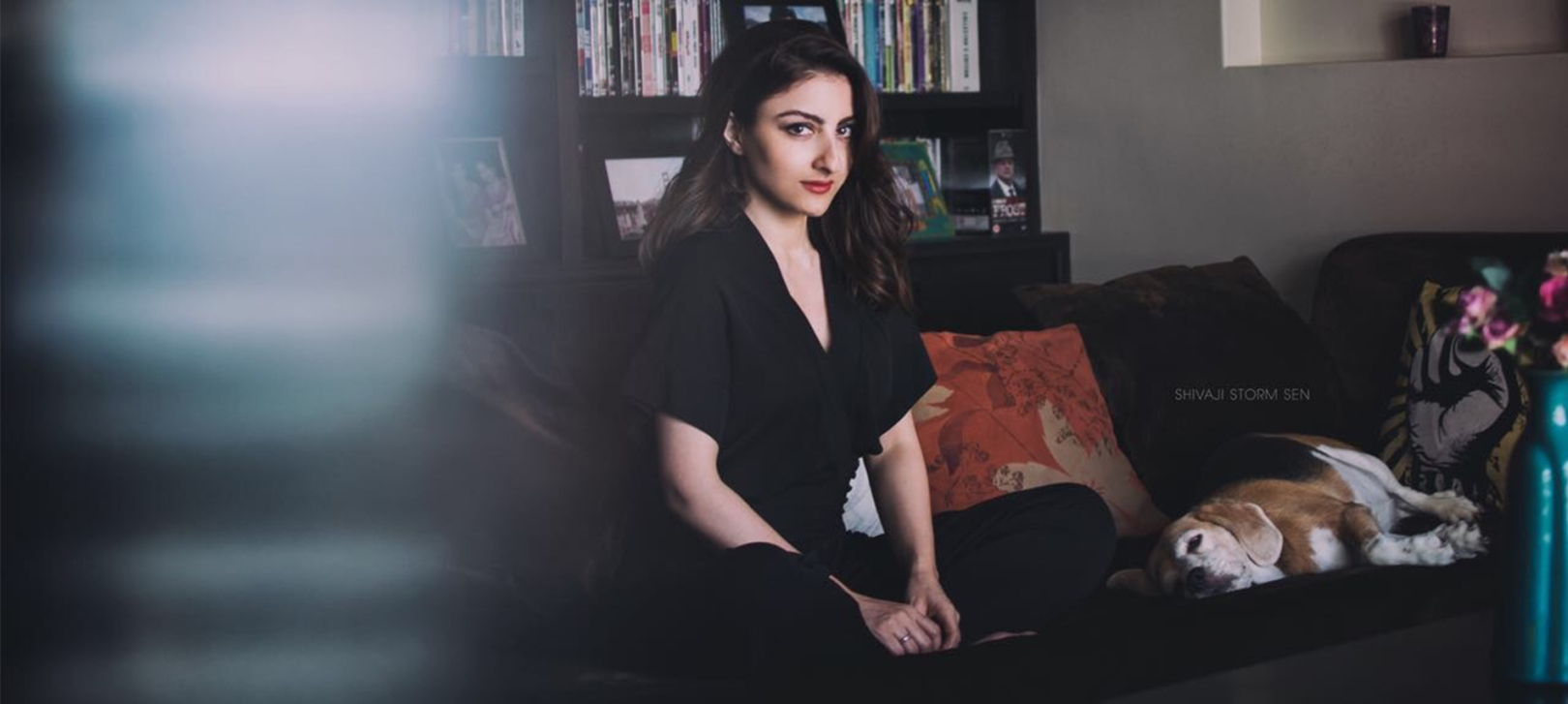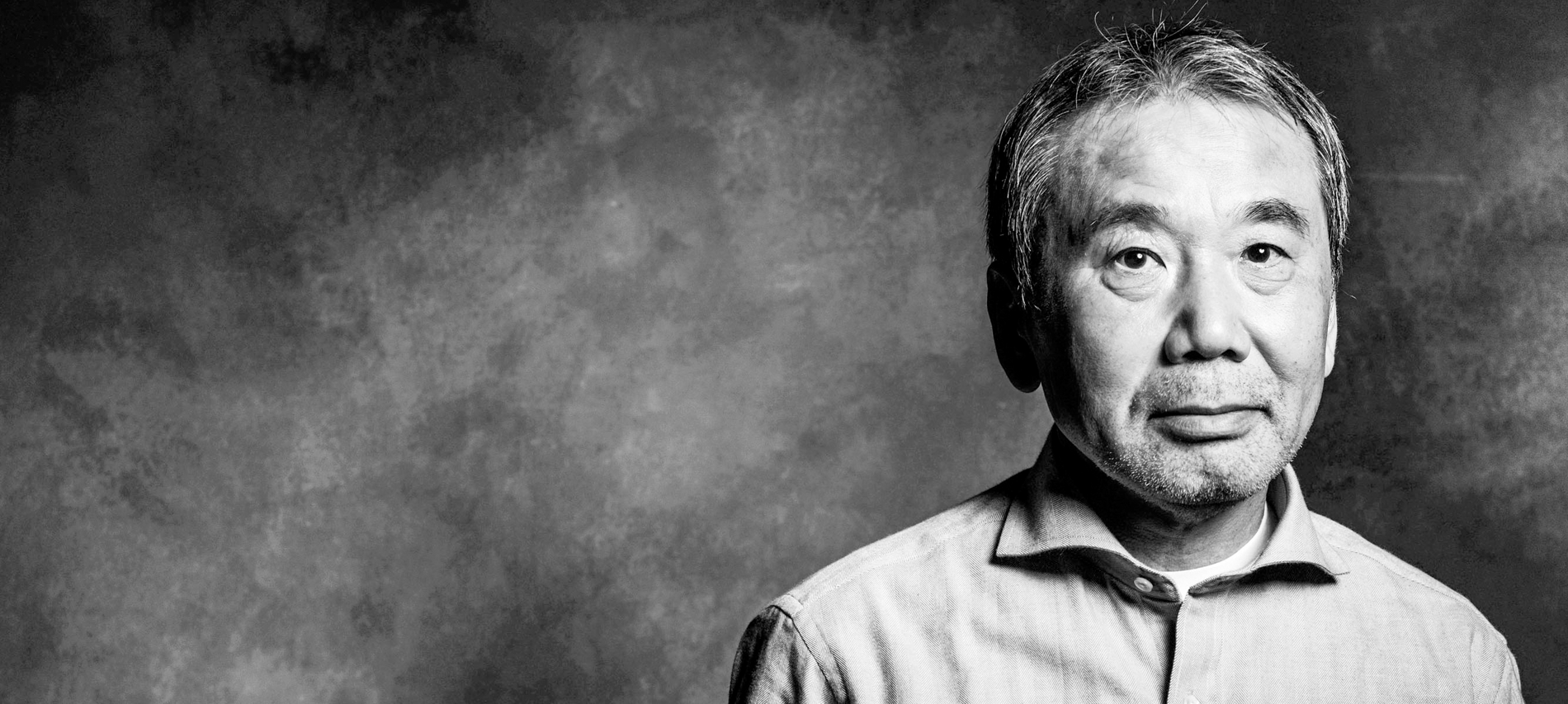Spring is the best season of all. With the flora at full bloom, you just want to stop and admire the beautiful scenes. Not only does spring signify beauty but it also signifies transition. So, what better way to enjoy the season than reading outdoors while basking in the sunlight.
Here’s a list of 5 books you should read this spring:
Anne of Green Gables
Mathew and Mariila Cuthbert were expecting a boy to show up from the orphanage. Little did they know, they will have the dreamy, talkative Anne to take care of their Green Gables. The descriptions of sights of Avonlea and Green Gables are so vivid that it makes you fall in love with nature even more.

Leaves of Grass
Strewn with vivid description of nature, Walt Whitman in this poetry collection professes his love for the universal elements, flora and the fauna. After reading the poems, we also cannot help but awe at the marvels of nature.

Heidi
This little girl was sent to live with her grandfather in the mountains. With each passing day, she grew to be fonder of the scenic beauty. But when she was sent to live in the city, even Clara’s friendship couldn’t make her miss the mountains any less. Honestly, even we wouldn’t have coped to live in the city after living amidst such beauty.

Catcher in the Rye
The protagonist of this story is standing at the brink of adulthood and is yet apprehensive to make the transition. He wants to own a rye field at the edge of a cliff where thousands of children play. He would then catch them if they come close to falling from the cliff. He just wants to be a savior of innocence when he is in the process of losing his.

The Room on the Roof
In a sleepy town of Dehradun, our boy Rusty flees from his house to live with his friends. Enamored by the beauty of his town, Indian customs, festivals and foods. He understands that his life will not be as hunky dory as he thought but he still does not give up on his pursuit of a happier life.

Can you think of any more books that depict change and nature’s beauty with equal panache? Tell us.
Tag: books
Announcement: Soha Ali Khan’s debut book!
Penguin India is proud to announce that it will publish Soha Ali Khan’s debut book in 2017.
Titled The Perils of Being Moderately Famous, the book will be a collection of humorous, and sometimes bizarre, stories on her life as a royal princess (her official title is Nawabzadi Soha Ali Khan of Pataudi and Bhopal) and a ‘moderately famous’ celebrity, as she likes to call herself.
Soha Ali Khan: ‘If I had a dollar for every person who told me to write a book, I would have umm . . . six dollars. I do love to read and I do that quite well (510 words a minute), so it can’t be much harder to write, right? I also have some time on my hands, as most actors often do (stop sniggering). I can use this time creatively to pen down memories, some insights from what surely must be a life less ordinary. I am a princess after all. Try not to imagine me saying that whilst stamping my feet in a silver sequined dress with a tiara on my head. And as a person of royalty, surely I am entitled to some royalties! But a word of caution—if you are hoping I will reveal the secret behind Kareena’s glowing complexion or how Bhai trains for an action film then, I am afraid you are barking up the wrong book. Although, in its pages there may be a passing reference to some of the idiosyncrasies of the more famous members of my family, the bulk of it, I’m afraid, is about . . . well, me. Just me. Is my life really worth writing about, or more to the point worth you paying to read about? Well, the good news is you’d be right not to wait for the movie.’
Editor’s Statement: ‘Having read a few chapters, I can safely say Soha was born to write. She has amassed a huge fan following not only for her movies but also for her witty repartee on Twitter, and her charm and wit continue to shine in this brilliant collection of personal essays where she recounts with self-deprecating humour some of the most poignant moments of her life—from growing up as a modern-day princess to life as a celebrity in the times of social media culture.’—Gurveen Chadha, Commissioning Editor
About Soha Ali Khan: Soha is an Indian film actor who has appeared in movies such as Rang De Basanti, Tum Mile and Go Goa Gone. She studied modern history at Balliol College, Oxford and earned a Masters’ degree in International Relations from the London School of Economics and Political Science.
She is the youngest daughter of actor Sharmila Tagore and Mansoor Ali Khan Pataudi, the 9th nawab of Pataudi. Both her father and paternal grandfather, Iftikhar Ali Khan Pataudi, were former captains of the Indian cricket team. Her older brother is Saif Ali Khan and she’s married to actor Kunal Kemmu.
Soha’s most recent release was 31st October, a true story focussing on the aftermath of Indira Gandhi’s assassination.
Photo credit: Shivaji Storm Sen
***
7 Facts You Probably Didn’t Know About Alice in Wonderland
Today, on the birthday of one of the greatest writers of all time, Lewis Carroll, we bring to you some facts you might not have heard of the book that gave him legendary status.
Alice in Wonderland came out in 1865 and was an instant success. The book is widely credited with changing the landscape of children’s literature, adding nonsensical fun to what had been a genre obsessed with moralizing.
1. The illustrator and the first edition. Prominent English illustrator John Tenniel was commissioned to create the accompanying art for the story. When he saw an early copy of the book, Tenniel was upset with how badly his drawings had been reproduced forcing Carroll to spend almost half of his annual salary to get it reprinted. Luckily, once it was published, Alice in Wonderland was an instant success. The rejected printings were later sold in the U.S.
Prominent English illustrator John Tenniel was commissioned to create the accompanying art for the story. When he saw an early copy of the book, Tenniel was upset with how badly his drawings had been reproduced forcing Carroll to spend almost half of his annual salary to get it reprinted. Luckily, once it was published, Alice in Wonderland was an instant success. The rejected printings were later sold in the U.S.
2. The real Alice. Alice was the name of the daughter of Henry Liddell, the dean of Christ Church College at Oxford, where Carroll taught mathematics. Carroll met the dean and Alice’s older brother first and that was how he came to know the entire family.
Alice was the name of the daughter of Henry Liddell, the dean of Christ Church College at Oxford, where Carroll taught mathematics. Carroll met the dean and Alice’s older brother first and that was how he came to know the entire family.
3. Alice’s Hour in Elfland. Carroll was inspired to write the story when he was coming up with a story for the young Alice Liddell on a boating trip. He tried out a few different titles for his novel, the original – presented to the 10-year-old Liddell was ‘Alice’s Adventures Underground.’ When it was picked up he decided to call it Alice’s Hour in Elfland. Another rejected idea was ‘Alice Among the Fairies’.
Carroll was inspired to write the story when he was coming up with a story for the young Alice Liddell on a boating trip. He tried out a few different titles for his novel, the original – presented to the 10-year-old Liddell was ‘Alice’s Adventures Underground.’ When it was picked up he decided to call it Alice’s Hour in Elfland. Another rejected idea was ‘Alice Among the Fairies’.
4. Carroll and the newfangled mathematical theories. Carroll was a very conservative mathematician and he detested the new forms of math emerging at the time compared to the algebra and Euclidian geometry he favoured. Mathematicians say that riddles like the one the Mad Hatter asks Alice about a raven being like a writing desk, were a reflection on the increasing abstraction that was going on in mathematics in the mid-1800s.
Carroll was a very conservative mathematician and he detested the new forms of math emerging at the time compared to the algebra and Euclidian geometry he favoured. Mathematicians say that riddles like the one the Mad Hatter asks Alice about a raven being like a writing desk, were a reflection on the increasing abstraction that was going on in mathematics in the mid-1800s.
5. The original manuscript. The original manuscript – the hand-written and illustrated version, belongs to the British Library and it rarely leaves London. When New York City’s Morgan Library managed to get hold of it for an exhibition, here’s what The New York Times had to say about it:
The original manuscript – the hand-written and illustrated version, belongs to the British Library and it rarely leaves London. When New York City’s Morgan Library managed to get hold of it for an exhibition, here’s what The New York Times had to say about it:
[I]t is accompanied by security measures whose details are cloaked in obfuscation befitting Tweedledum and Tweedledee. Jamie Andrews, the head of cultural engagement for the British Library, said that it was not checked on the flight over (‘We don’t freight things like that’), but he would not say exactly where it was on the plane or who exactly was with it
It did cause a minor stir at the airport. “I showed the customs form to the customs guy at J. F. K.,” Mr. Andrews said. The man looked at the declared value of the manuscript, a number Mr. Andrews would not divulge. “And he said, ‘Jeez, son, what have you got in there, the crown jewels?’ And in a sense it is our crown jewels.”
6. Alice and brand licensing. Carroll was one of the first authors to work with manufacturers to bring out related products. This is one of the main reasons why Alice’s tale is so popular, even amongst people who haven’t read it. He understood the importance of tie-ins, designed a postage stamp case decorated with images of Alice and allowed her image to adorn cookie tins and other products.
Carroll was one of the first authors to work with manufacturers to bring out related products. This is one of the main reasons why Alice’s tale is so popular, even amongst people who haven’t read it. He understood the importance of tie-ins, designed a postage stamp case decorated with images of Alice and allowed her image to adorn cookie tins and other products.
For fans eager to learn more about the origins of Alice’s tale, he produced a facsimile of the original manuscript, a rare move for an author of his day. Later, he even created a shorter version of the book for toddlers.
7. Alice in Wonderland has never been out of print… ..It has also been translated into 176 languages. The sequel, Through the Looking-Glass and What Alice Found There, sold out within seven weeks of its publication.
..It has also been translated into 176 languages. The sequel, Through the Looking-Glass and What Alice Found There, sold out within seven weeks of its publication.
————
The popularity of Alice in Wonderland, even after more than 150 years, reminds us that Lewis Carroll’s magnum opus has passed the test of time. We hope these facts serve to make you admire him more.
6 Things You Probably Didn’t Know About Haruki Murakami
Haruki Murakami is one of the most famous novelists at the moment. Until age 29, however, he never considered himself capable of writing a book. It was only after the success of his first two books, Murakami became a full-time writer, producing a prolific body of work. He has also taught at Princeton University and won multiple literary awards throughout his career.
Murakami’s works have also been translated into more than 40 languages and have sold millions of copies. The author has gained cult status both at home and abroad. But, how well do you exactly know him?
Despite his popularity, many people do not know much about the reclusive author. That is why, on his birthday, we’ve compiled a few facts that you probably didn’t know about Haruki Murakami.
1. He loves Jazz
Like Toru Watanabe, the narrator of Norwegian Wood, his first job was at a record store. Murakami loves Boston because he feels that it is the most convenient and “satisfying city for collecting secondhand jazz records.”

2. His routine is rigid. And intense.
Murakami has said in the past that he feels writing a long novel is like survival training. He believes that physical strength is as necessary as artistic sensitivity. And judging from his routine, he is a firm believer.

3. He drafts. A lot.
A true perfectionist, all of Murakami’s works are true labours of love.

4. Who did it?
He’s admitted that when he starts writing a story, he doesn’t know the conclusion. He says that he writes the book because even he wants to find out what happens. Murakami believes that if he knew who the killer was, then there’s “no purpose to writing the story.”

5. Video games are like books?!
The award-winning author has revealed that sometimes when he’s writing, he feels like the designer of a video game and, at the same time, the player.

6. His taste in films.
Murakami loves movies, and according to a report, during one year at university, he watched more than 200 films!

A private and reluctant celebrity, Murakami loves to maintain a degree of anonymity and not much is known about him, especially considering he’s a best-selling writer. We hope these facts serve to make you admire him more.
——————
What Books Have Taught Me
When I received this assignment, I immediately texted my friends asking them about their experience of reading; what have books taught them? I learnt that one of the common feature in each of their experiences was the ability of books to cure the ailment of loneliness. My friends are weird and quirky and it is not easy to be so in a world predominated by normalcy. Reading books written by unconventional authors with even more unconventional characters, one stops feeling outlandish.
Being a socially awkward child I formed an immediate relationship with books.. I remember my mother giving me books- Enid Blyton’s Secret Seven, Malory Towers, St. Claires, The Faraway Tree Series, The Five-Find outers. I remember gobbling up each book and asking my mother for more.
There is only so much that someone or something can teach you. The best thing about books is that they don’t coerce you into believing something. They work their way through suggestion.
Books weren’t my best friends back then because they never listened. They spoke to me and I listened. I think I preferred it that way. Listening means calming the hurricanes inside your mind and that is exactly how books helped me. Books also taught me how to speak. They equipped me with the power of words. I learnt how to use big phony words to satisfy my teachers in school. Like teachers, books taught me that it is futile to have a colossal lexicon at your disposal when you are going to utilize it to speak the same insipid insignificant rubbish everyone else speaks. Use words that are at your disposal wisely. Do not abuse them. Do not overuse them.
Junot Diaz brought me up close and personal with language. I learnt not to shun the colloquial for the fancy because the colloquial is real. There is too much artificiality in this world. To drag language through the same rut would be wrong. Steig Larsson taught me to be unbiased and not to conform to the norms of society.
Reading is sometimes reduced to a very boring exercise of reaching the last page. Some literature-elitists want you to have read certain books or you’re out of the clique – whatever clique you were or weren’t part of! The point is every book has something different to teach every person. The most picked-on book like, ‘The Twilight’ might have helped someone in ways we couldn’t have. In the exercise of defining the canon and deciding which books are passé and which ones are in vogue, we are missing out on one important thing: reading.
So, Stop judging. Start reading. Start learning.
—————–
Credits: Sindhoora Pemmaraju
About Sindhoora
An unabashed bibliophile, Sindhoora is Majoring in English Literature. She loves literature and music.
—————–
You Are What You Read

Every person who loves books has a special space in their home where they build a shrine for all the books they have ever bought. This shrine, in colloquial terms, is known as ‘library’ and commands great respect and devotion from acolytes. One of the universal truths is that you are what you read.
Sometimes when we read books, and in the process, fall in love with them and the people we meet in them, we become one of them. I remember when I first started reading Harry Potter, I couldn’t stop faking a British accent whenever I spoke to my friends in English. I would also frequently use words like ‘blimey’, ‘wicked’, ‘Expecto Patronum’, ‘dementor’, etc when in conversation with ‘muggles’.

source: tumblr.com
When we read, we start constructing the character we like in our mind, we often tweak them further to suit our palette. At each step of construction, we try to emulate them and become more like them. So deep in the world of books are we that we scarcely care that we are becoming someone else. It is a fun experience to discover traces of our favourite characters within us. But it is also dangerous when inspired by crime novels; some members of our cult go a wee bit crazy. Books like The Collector and The Psychotic have inspired shameful crimes.
People who aren’t really taken with books, undermine their power and their ability to be transformed into dangerous tools. For isn’t that the whole reason why some books are banned? Because they are dangerous and can reveal more than what some people deem it to be acceptable.
Catcher in the Rye was a revelation. It was banned because the government was worried that it would influence teenagers to engage in questionable activities. But Salinger was just capturing what was already happening in the country. He was speaking the truth and he was censored for it. In fact, anybody who has read 1984 would also tell you how powerful literature can be and how its censorship proves it. In fact, in ancient Greece, there was a law which prohibited the utterance of certain select words. If that doesn’t prove how powerful words can be and the obsession of those in power to regulate it, I don’t know what will.

source:4.bp.blogspot.com
Books hold more sway over minds than swords or bullets do. And it is for this reason why reading must be exercised with caution and the reader has to learn to be sceptical of the narratorial voice, learn where the narratorial voice ends and the author’s voice seeps in.
Books say a lot about you. The books I have read find their way into me like weeds; I don’t mind them growing on me. I have a little of Junot Diaz’s Lola’s sass in me, Oscar’s otaku-ness; Rowling’s Hermione’s curiosity and Ron’s appetite; Fitzgerald’s Amory’s silliness and so on. Point is, books make you. And you make them what you want them to be.
————————
Credits: Sindhoora Pemmaraju

An unabashed bibliophile, Sindhoora is Majoring in English Literature. She loves literature and music.
New Year’s special: A reader’s resolutions
The New Year is almost upon us and research tells us that people who make resolutions on New Years’ as opposed to resolutions taken up throughout the year, succeed in keeping them. So let’s get this New Year started with some interesting choice of resolutions for bibliophiles:
1. The Books that Defined the Eras – Books that are legendary don’t only define people, they also revolutionize the time period and the thinking. The Beats in the USA and the Hungryalists in India defined literature and revolutionized it. They lived the words they wrote. My New Year resolution is to plunge myself into these literary movements and read all their work, the whys, the whats and the hows.
2. Cosplay – Cosplay is really cool in general. But in places like India, where cosplay doesn’t happen everywhere across the country and frequently, it would be so much fun to dress up as your favourite fictional character and be them for a day. It would certainly startle some people out, but it would also be so much fun! Imagine dressing up as Hermione Granger or Cho Chang from Harry Potter and screaming Expelliarmus with your wand!
source: gamingcentral.in
3. The Forbidden – The forbidden is also the most tempting. This year could be the year for you to read all the banned books, books by exiled authors and controversial books. There is plenty of fish in the sea, for you to pick and choose the one you want to hook and read.
source: literarysluts.com
4. Popular Fiction – Lewis Carroll, in his book, ‘An Experiment in Criticism’, also muses about the blasphemy or the dark aura that literature-elitists have created around the books that constitute the genre of popular fiction. There is always ONE (or more than one) book that EVERY book-lover wants to read but is hesitant to, because the Literature Gods have declared them as blasphemy. But this New Year can be letting go of all the inhibitions and reading what we like and trying to understand the animosity displayed against popular fiction.
source: facebook.com/sudeep.nagarkar
5. Audio books – This New Year could be about downloading the ‘discography’ of as many authors and poets as possible. To be able to listen to the works of artists in their voice is a completely different and new experience, everyone must be acquainted with. The way the tenor of the voice drops, picks up, trembles at different places, and completely changes one’s understanding of literary experience. So do not hesitate to listen to audiobooks by writers!
source: cdn.images.express.co.uk
6. Clean the Clutter- Every book-lover has a messy book shelf, they always bookmark for cleaning later. But start this New Year by cleaning the clutter, arrange your books according to colour, or title or author. Or arrange them according to priority and need; place the books you don’t need in your life right now far behind, or in the corner, and keep the ones that cheer you up right in the middle where you can see them.
source: memecreator.org
7. Collect Bookmarks – We might not have any friend writing to us and sending us postcards from exotic places, but books are our exotic places and bookmarks, our postcards. So, collect bookmarks like post cards to boast about the places you’ve been to in books.
source: etsy.com
8. Read a Book A Week – Reading a book a day is not only ambitious but also the whole exercise of reading is rendered futile because we’re hardly learning anything as we are more worried about sticking to our timeline. Reading a book a week is much more productive and relaxing – pick up any book of your choice and start reading it. Don’t stick to one genre. Explore more. Read stuff that you’ve avoided all these years, the books that make you cringe and the books that make you judge others. Read everything, read a book a week, read leisurely.
source: img1.etsystatic.com
9. Join a Book Club – Join a book club! For what? Well, I don’t know. And that is exactly what we have to find out. What really happens in book clubs? Do people just sit around and discuss books? Just imagine coming up with insane new theories about books you’ve read, with people pitching in. Imagine arranging for cosplay events, poetry and other fun literary events, with these people. Book clubs can be your own literary haven, away from the overrated normal non-readers’ world.
source: 31.media.tumblr.com
10. Write – Almost every obsessive reader writes. Promise yourself this New Year, to write something new or old every day. Put up sticky notes everywhere to remind yourself, write everyday about everything; the bug bites and the cold. Accompany your writing with a lot of reading and before you know it, you might even end up compiling a book!
source: ondolady.com
—————–
Happy 2020, readers! 🙂
























